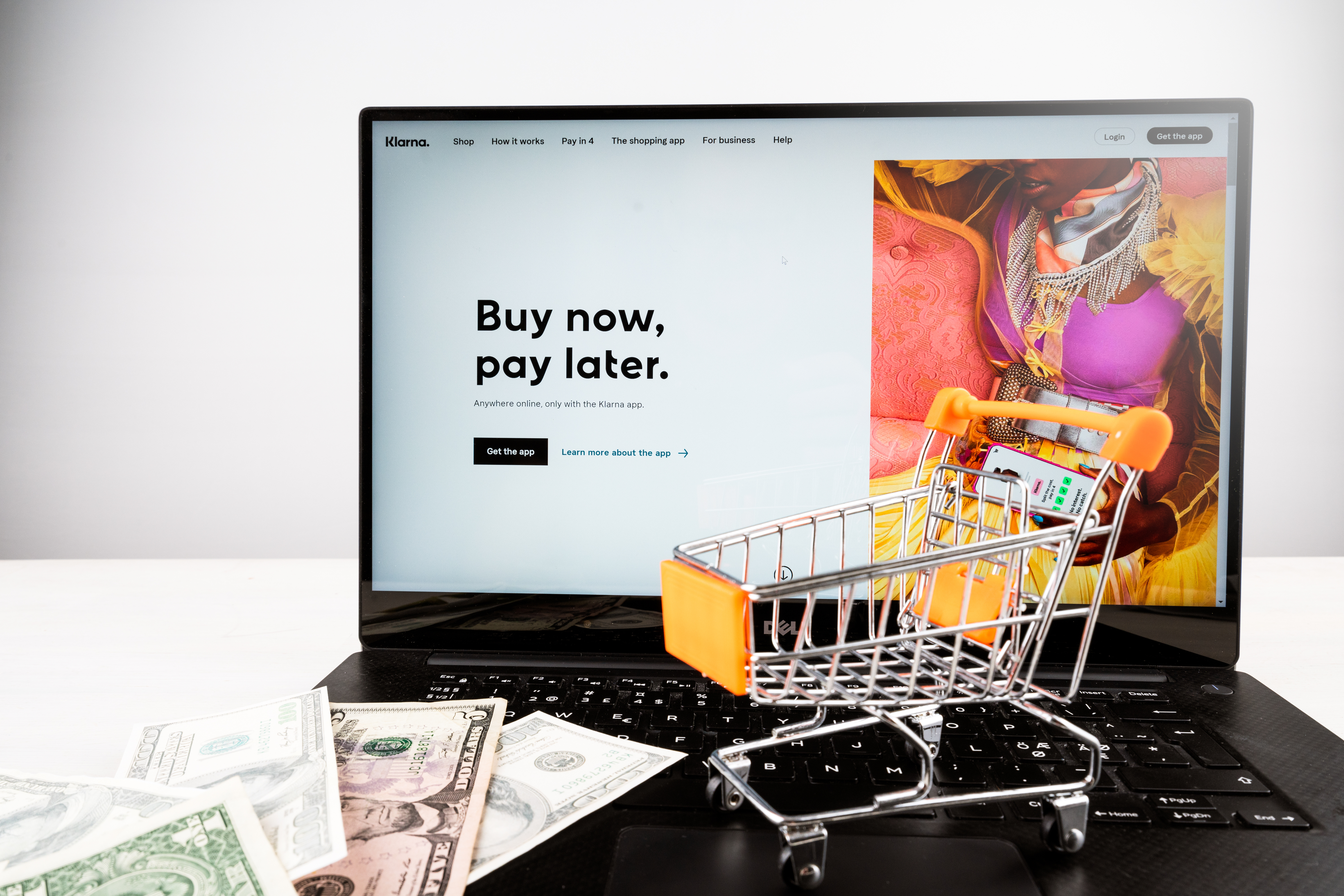Buy now pay later - Introduction
The concept of Buy Now, Pay Later (BNPL) has long been a staple in the B2C industry, but it’s increasingly gaining traction in the B2B sector as well. The COVID-19 pandemic accelerated the demand for more flexible, short-term financing options, prompting the rise of BNPL fintech companies such as Affirm, Resolve, Afterpay, and Klarna. With businesses seeking alternative methods to manage cash flow and access funding, BNPL services have emerged as a popular solution.
The BNPL market is so dynamic that reports of BNPL provider Zip’s interest in acquiring rival Sezzle have captured financial headlines. Traditionally, small businesses have relied on working capital from bank loans to fund operations, but bank approval rates are often low—at just 14.3% for small businesses as of November 2021. This creates a significant barrier for businesses looking to maintain liquidity and fund their growth.
However, the growing B2B eCommerce ecosystem now offers a valuable alternative. These platforms provide financial services that allow B2B buyers to secure short-term financing and favorable payment terms directly through eCommerce marketplaces. This shift is transforming how businesses approach purchasing, giving them more flexibility and control over their financial decisions.
The broader impact of BNPL in the B2B space also lies in its ability to democratize access to funding for businesses of all sizes, especially small and medium enterprises (SMEs) that may struggle with traditional financing routes. By offering a more inclusive payment solution, BNPL is helping to level the playing field and empower businesses to make purchases without the immediate financial strain of traditional credit systems. Additionally, this shift towards flexible payment options aligns with the broader trend of digitization in business transactions, where convenience, speed, and accessibility are increasingly prioritized.
What does BNPL mean?
Buy now, pay later allows a buyer to purchase something and pay for it in installments. You create a payment plan from the total purchase amount, with the first payment usually due at checkout.
Companies like FIS make apps that handle the entire B2B buy process at the time of purchase. Others like PayPal and Layaway also provide pay later services, primarily for online shopping at the point-of-sale (POS).That ensures the merchant receives their full payment upfront at checkout while the buyer pays in installments to the BNPL provider.
Some providers offer interest-free payment options, but others charge interest. There are late fees penalties for late payments, although retailers will typically provide underwriting for any losses.
Advantages of B2B BNPL for merchants
1. Higher average order value
With this payment method, merchants can offer buyers a short-term financing solution to aid repayment. When buyers can pay in installments, there are fewer chances of them abandoning their carts, which boosts transaction volume.
2. Higher average order value
With the BNPL option, buyers realize they don’t have to pay for everything upfront. They will purchase more as they can pay later in pain-free installments.
3. Gain insight into buyers’ purchasing habits
Merchants can quickly learn about their buyers’ habits by using BNPL. For example, a merchant can detect which goods or services buyers pay for using BNPL. This information can help a merchant stock up more of said goods.
Advantages of B2B BNPL for buyers
1) Low or no interest short-term financing option
For most SMEs, the main challenge is securing traditional loans as they don’t meet eligibility criteria. Business credit cards and merchant cash advances are options, but they charge high-interest rates. Small businesses and startups can access short-term financial loans with little to no interest through the buy now pay later system.
2) Increased cash flow
The business environment is unpredictable, and many buyers prefer to have cash on hand to cater to unforeseen circumstances. It is common to come across buyers who can afford to pay for an item in full but prefer the BNPL model to cater to their other needs.
3) Seamless checkout experience
Previously, most buyers had to secure short-term financing options through alternative lenders or banks. The downside to this is the delays. Additionally, banks are still shying away from offering BNPL as a payment option. However, a BNPL model integrated into an existing payment platform provides a better customer experience.
The future of BNPL in the business-to-business sector
One of the biggest challenges in the B2B sector is slow payments caused by:
1. Complex payment processes
Businesses that rely on manual processes like checks and manual invoicing make it more challenging to process real-time payments than companies using digitized processes. Suppliers and customers receive late payments due to these unnecessarily complex payment processes.
2. Improper integration
If a business uses a payment system not fully integrated, it can cause payment delays that lead to supply chain issues.
3. Data entry errors
Some business people still conduct B2B payments using traditional methods like checks. It is commonplace for these to contain errors like wrong credit card numbers. Other issues include fraud and security breaches. Buy now, pay later helps take care of the issues that other traditional payment methods have while encouraging growth in the following ways:
Impact of BNPL on B2B sector
1. Replacing trade credit
Before BNPL became a major payment method, business-to-business trade chiefly involved credit as business customers would purchase goods or services but pay for them later. The electronic BNPL method offers the same, but this time, the vendor receives the full payment at purchase, although the customer pays later. This ensures continuous cash flow both at the supplier and buyer levels.
2. Clearing inventory
Business-to-business transactions start with companies buying raw materials from different companies, selling the goods to wholesalers, who then sell to retailers. If everyone in the chain made complete payments in time, it would speed up stock clearance. With BNPL, there will be an increase in pace in the supply, production, and sale of goods. It offers minimal payment delays, leading to increased transactions.
3. Suitable payment option
Lengthy payment times and the lack of suitable payment options hinder the growth of the B2B industry. Most B2B businesses deal with large transactions, and any small error in payments causes a delay that can set the business back.
4. Liquidity advantage
Businesses using BNLP can take full advantage of liquidity. BNPL can pay suppliers in full, even when the buyers haven’t fully paid for the commodities yet. This means suppliers will always have liquidity as the BNLP company provides the balance.
5. Expanding business
Like the business-to-consumer sector, B2B industry players are also willing to connect to customers directly. As more B2B companies join the digital space, sellers can connect to buyers digitally. That allows businesses to expand and reach a broader clientele.
A BNPL payment system at POS checkout enables business customers to order items in bulk and continue business operations without worrying about interrupted cash flow.
How to integrate BNPL ecommerce options in your business
Ideally, you want a BNPL system offering a seamless checkout experience, reliability, and instant payment. That’s precisely what Resolve provides. Buy Now, Pay Later in traditional B2B often means net terms invoicing. However, offering net terms to your customers introduces cash flow issues, financial risk, and potentially a slow start with credit checking for your customers. Resolve is Net terms-as-a-service, this means Resolve takes care of every aspect of offering net terms to your customers (online or offline). Resolve integrates with Magento2, WooCommerce and they have an API.Here’s what it looks like to offer net terms in your ecommerce checkout flow:https://resolvepay.com/net-terms-ecommerce/
In general, it may take a while before customers begin to use this net terms BNPL option, so here’s how you can encourage them to use this payment method:
- Inform your consumers early on in the purchase journey. That way, they’re aware that such an option exists.
- Use net terms BNPL in your promotional strategies. That will get customers to use it as an option, and once they enjoy the benefits, they are likely to continue using it.
- Choose a BNPL provider with high approval rates for your customer base, ensuring that a high percentage of your customers make it past checkout.
Conclusion
BNPL financing is key to the B2B industry and will likely see plenty of growth in the coming years, thanks to increased online shopping. This is thanks to the increased cash flow and fewer payment delays that BNPL provides.
Further, BNPL offers SMBs alternative financing where they would otherwise not gain access from traditional lenders. Companies like Resolve offer B2B payment management to run the BNPL process, allowing you to focus on the other aspects of the business.







